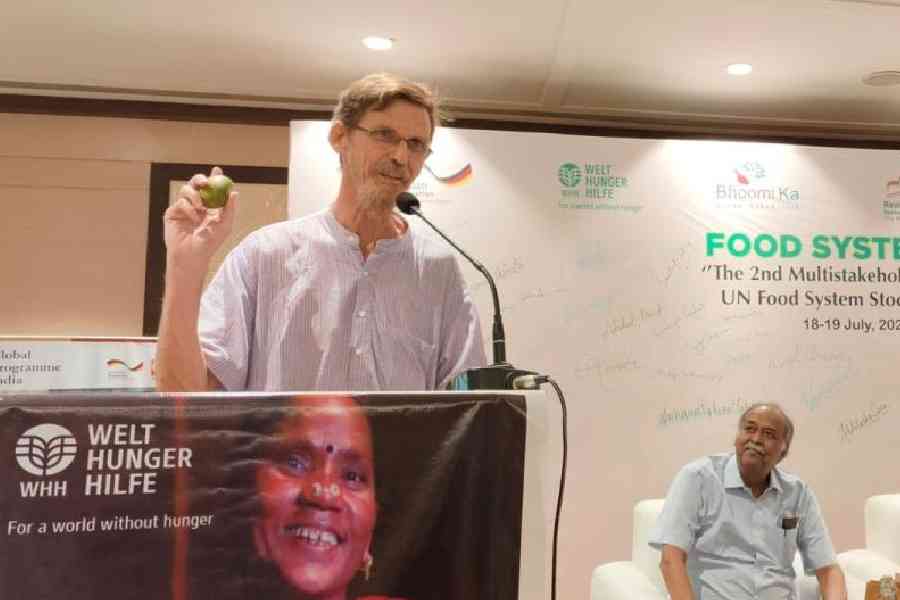Increasing crop intensity and crop diversification, reviving earlier food systems, ensuring eggs in mid-day meals and anganwadis and promoting cooperative societies were some of the suggestions at the end of the two-day “Food System Dialogue” at Jharkhand capital Ranchi on Wednesday.
The suggestions will be incorporated into the 2023 UN Food Systems Stocktaking Moment organised by Welthungerhilife (an international NGO) to be held in Rome between July 24 and 26.
Jharkhand agriculture secretary Aboobacker Siddique pitched for crop intensity by stating that agriculture is done only in 28 lakh hectares of land in the state, while the total geographical area here is 79.72 lakh hectares.
“Only 20 per cent of the total cultivable land is fully irrigated. Farmers cultivating the rest of the land have to depend entirely on rainwater. There is a need to bring more areas under cultivation by increasing crop intensity. The farmers should take benefit of government schemes in this direction,” said Siddique.
He also suggested crop diversification taking benefits of government subsidies. “We have earmarked Rs 50 crore budget for Millet Mission. Civil society organisations (CSOs) should encourage farmers for millet farming. The state has conducted study on agro-climatic zones and there is a need to make specific plans based on it,” said Siddique.
Economist and former vice-chancellor of Vinoba Bhave University, Hazaribagh, Ramesh Sharan, stressed on the revival of the earlier food system. “Since the 1960s, there had been a tradition of sowing crops in upper land, medium and low land. Accordingly, about 110 types of paddy varieties were available in the state and farmers had full knowledge about each and every nuance. However, a 2011 study found that only six-seven types of native varieties of paddy are left with the people which shows that farmers have become dependent on the external market, which is making them weaker economically,” said Sharan.
He also pointed out that the displacement of farmers due to infrastructure and industrial projects were also factors responsible for damaging food systems. He also informed that due to the wide use of chemical fertilisers, fishes in the paddy field and rivers which were an accessible source of protein have been destroyed.
Economist, who is also known for the rural employment guarantee scheme NREGA, Jean Dreze claimed that eggs were the best weapon against malnutrition. “The government should not have any excuse in distributing eggs in mid-day meals and anganbari centres at least one egg daily (at the moment they get it twice a week) in view of the malnutrition prevalent among rural children. Jharkhand has plenty of natural resources and there is no reason why poverty would plague the state if these resources are developed,” said Dreze.
He also advocated for more focus on MGNREGA, especially planting of fruit-bearing trees under the scheme as it would help in the economic development of farmers in the long run. He also felt that tribal society has a strong legacy of cooperation.










